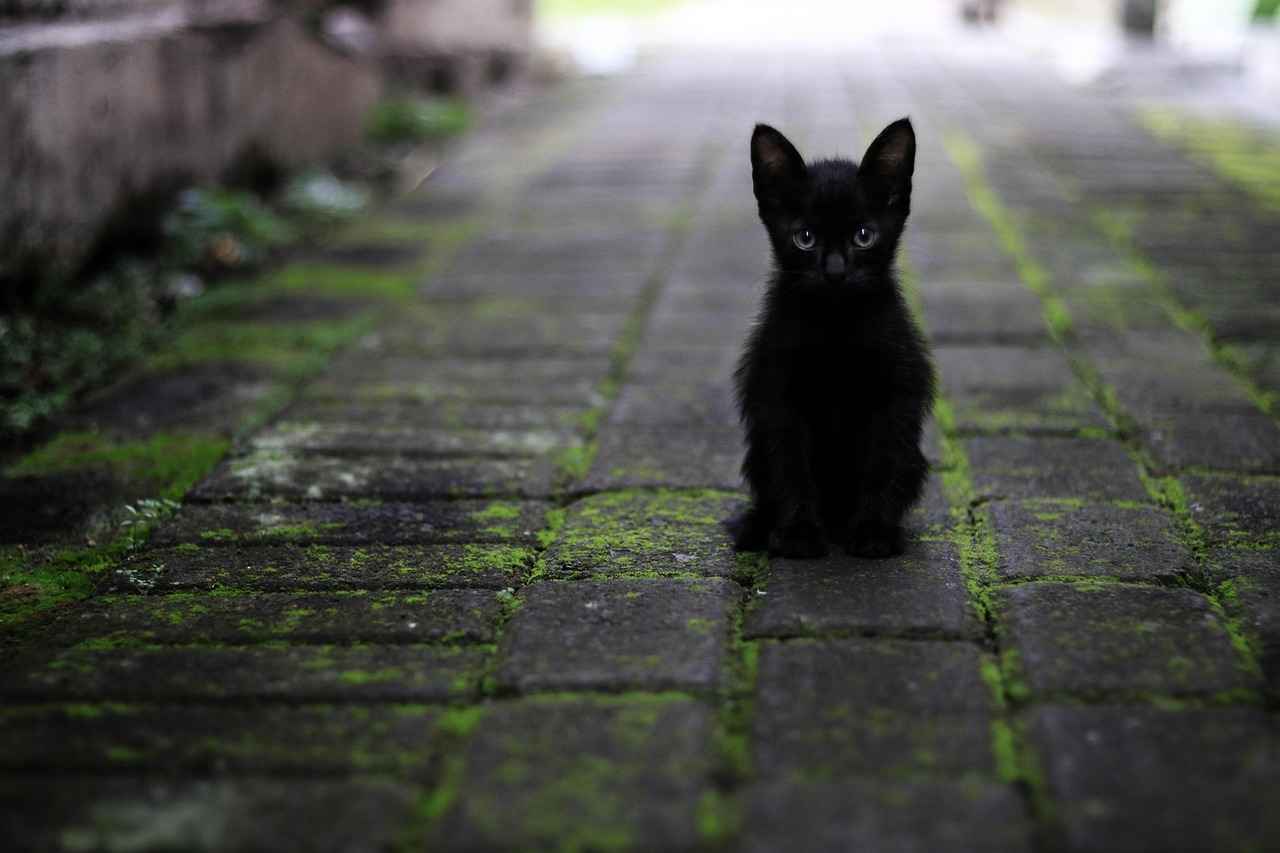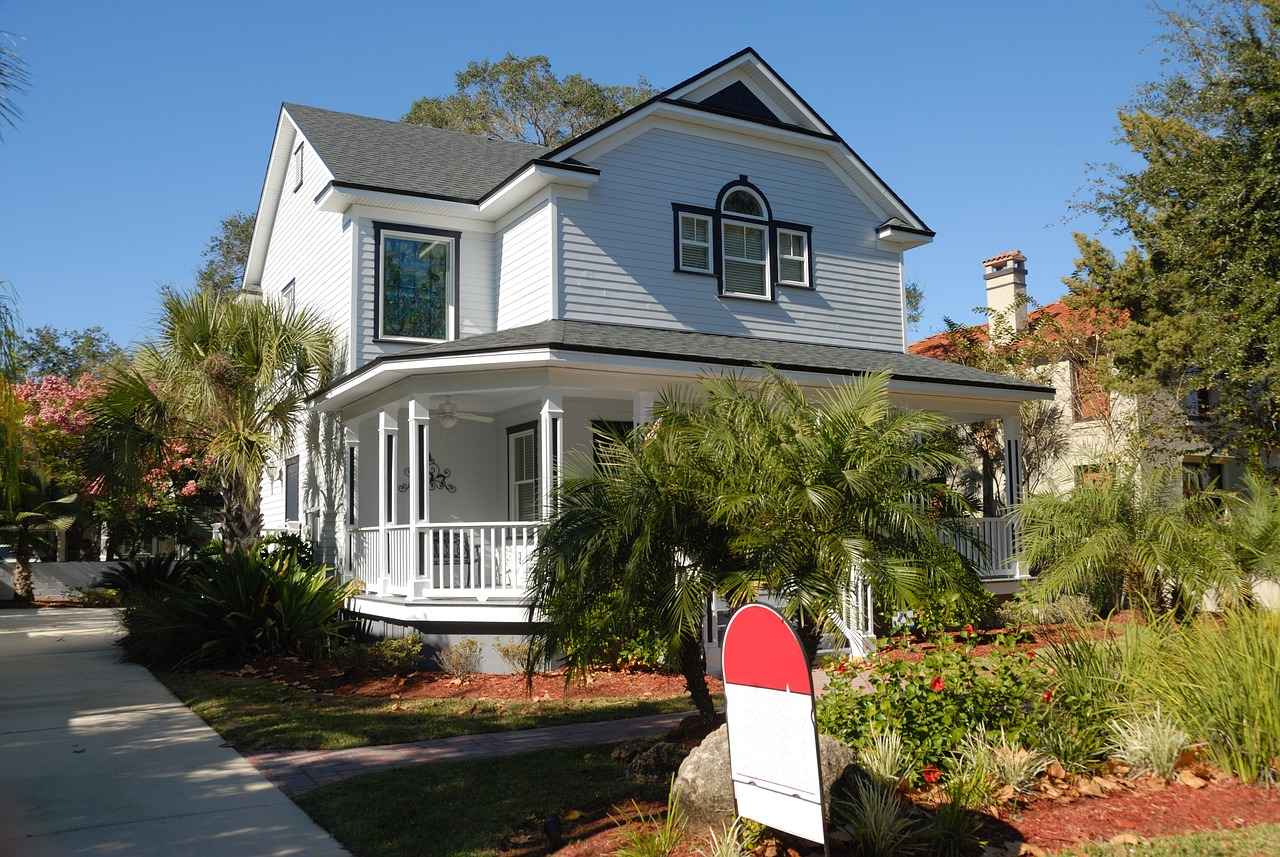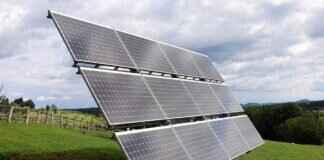This article presents a comprehensive review of Smile Hair Clinic, a prominent hair restoration facility in Istanbul. With a focus on its range of services, patient experiences, and overall reputation, we aim to determine whether it stands out as the premier choice for those seeking hair restoration solutions.
Overview of Smile Hair Clinic
Established as a leader in the hair restoration industry, Smile Hair Clinic combines advanced technology with a patient-centric approach. Over the years, the clinic has grown significantly, attracting both local and international clients seeking effective hair restoration treatments.
Services Offered at Smile Hair Clinic
The clinic provides a variety of hair restoration services, including:
- FUE (Follicular Unit Extraction)
- DHI (Direct Hair Implantation)
Each procedure is designed to cater to the unique needs of patients, ensuring optimal results and satisfaction.
Patient Testimonials and Experiences
Understanding patient experiences is vital for evaluating the clinic’s reputation. Many patients have shared their positive feedback, highlighting the clinic’s professionalism and the quality of care received. However, some have also reported challenges, prompting the clinic to address these concerns proactively.
Expert Insights on Hair Restoration
Industry experts have praised the techniques utilized at Smile Hair Clinic, affirming their effectiveness and safety. Their insights provide potential patients with confidence in the clinic’s methods.
Cost of Hair Restoration at Smile Hair Clinic
Financial considerations are critical for potential patients. The clinic offers competitive pricing compared to other facilities in Istanbul, along with various financing options to make treatments more accessible.
Conclusion: Is Smile Hair Clinic the Best Choice?
After a thorough review of the clinic’s services, patient testimonials, and expert opinions, it is clear that Smile Hair Clinic is a strong contender for the best hair restoration clinic in Istanbul. Its commitment to patient satisfaction and innovative techniques make it a top choice for those seeking hair restoration solutions.

Overview of Smile Hair Clinic
Smile Hair Clinic has established itself as a premier destination for hair restoration in Istanbul, renowned for its innovative techniques and commitment to patient care. Since its inception, the clinic has experienced significant growth, becoming a trusted name in the hair restoration industry.
Founded by a team of experienced professionals, Smile Hair Clinic began its journey with a mission to provide high-quality hair restoration services. Over the years, it has embraced advancements in technology and medical practices, leading to the adoption of state-of-the-art techniques such as Follicular Unit Extraction (FUE) and Direct Hair Implantation (DHI). These methods have not only enhanced the quality of results but have also improved patient comfort during procedures.
As the demand for hair restoration services has increased, Smile Hair Clinic has expanded its facilities and services. The clinic now boasts a team of highly skilled surgeons and medical staff who are dedicated to ensuring a positive experience for every patient. The focus on patient-centric care means that each individual receives personalized attention, tailored treatment plans, and thorough consultations before any procedure.
Moreover, the clinic’s reputation has been bolstered by numerous positive testimonials from satisfied patients, highlighting successful outcomes and a supportive environment. This growth trajectory reflects not only the clinic’s commitment to excellence but also its adaptability in a rapidly evolving industry.
In summary, Smile Hair Clinic’s history is marked by a dedication to innovation and patient satisfaction. As it continues to grow, it remains a leading choice for those seeking effective hair restoration solutions in Istanbul.

Services Offered at Smile Hair Clinic
Smile Hair Clinic is dedicated to providing a comprehensive range of hair restoration services tailored to meet the unique needs of each patient. Among the most sought-after procedures are the Follicular Unit Extraction (FUE) and Direct Hair Implantation (DHI) techniques. Below, we explore each method in detail, outlining what patients can expect during their treatment journey.
| Procedure | Description | Expected Outcomes |
|---|---|---|
| FUE Hair Transplantation | FUE involves extracting individual hair follicles from the donor area and implanting them into the balding or thinning areas. This minimally invasive technique is known for its precision. | Patients can anticipate natural-looking results with minimal scarring and a quicker recovery time. |
| DHI Hair Transplantation | DHI is an advanced technique where hair follicles are implanted directly into the recipient area using a specialized tool. This method allows for greater control and density. | Patients often enjoy fuller, more natural results, with reduced trauma to the scalp. |
What to Expect During Treatment
- Consultation: Each patient begins with a thorough consultation to discuss their goals and assess their hair loss condition.
- Preparation: On the day of the procedure, patients will receive instructions and may undergo some preparatory treatments.
- Procedure: The actual hair restoration process can take several hours, depending on the number of grafts required.
- Post-Procedure Care: After the treatment, patients will receive detailed aftercare instructions to ensure optimal healing and results.
Conclusion
Understanding the variety of services offered at Smile Hair Clinic is crucial for potential patients. With advanced techniques like FUE and DHI, patients can expect personalized care and impressive outcomes tailored to their specific needs.
FUE Hair Transplantation
is a revolutionary technique in the field of hair restoration, widely recognized for its effectiveness and minimal invasiveness. This method focuses on extracting individual hair follicles from the donor area and implanting them into areas of thinning or balding. Understanding the process, benefits, and expected outcomes of FUE is crucial for anyone considering hair transplantation.
The FUE process begins with the selection of a suitable donor area, typically at the back of the head, where hair is denser. Using a specialized tool, surgeons extract individual follicular units, which are then prepared for transplantation. The procedure is performed under local anesthesia, ensuring that patients experience minimal discomfort throughout the process. One of the key advantages of FUE is that it does not require a linear incision, resulting in minimal scarring and a quicker recovery time.
- Benefits of FUE:
- Minimal Scarring: Unlike traditional methods, FUE leaves tiny, dot-like scars that are less noticeable.
- Shorter Recovery Time: Most patients can return to their normal activities within a few days.
- Natural Results: The technique allows for precise placement of follicles, leading to a more natural appearance.
Patients can expect to see initial hair growth within a few months, with full results typically visible after 6 to 12 months. The hair that grows back after FUE is permanent, as it is taken from areas that are genetically resistant to balding.
In conclusion, FUE Hair Transplantation offers a modern solution for hair loss, combining advanced techniques with patient comfort. Its numerous benefits and natural-looking outcomes make it a preferred choice for many individuals seeking to restore their hair.
Benefits of FUE
Follicular Unit Extraction, or FUE, has revolutionized the hair restoration landscape, offering numerous advantages over traditional methods. In this section, we will explore the key benefits of FUE that make it a preferred choice for many.
- Minimal Scarring: One of the most significant advantages of FUE is its ability to leave minimal scarring. Unlike traditional strip methods, which can result in a noticeable linear scar, FUE extracts individual hair follicles from the donor area. This technique results in tiny, dot-like scars that are less visible, allowing patients to wear their hair short without worry.
- Quicker Recovery Time: Patients who undergo FUE typically experience a faster recovery compared to those who opt for traditional methods. The minimally invasive nature of FUE means less trauma to the scalp, leading to reduced swelling and discomfort. Most patients can return to their daily activities within a few days.
- Natural-Looking Results: FUE allows for a more natural hairline design. Surgeons can strategically place hair follicles to mimic the natural growth pattern, resulting in a more aesthetically pleasing outcome. This precision is particularly beneficial for those looking for a seamless transition in their hair restoration journey.
- Less Pain and Discomfort: Many patients report less pain during and after the FUE procedure compared to traditional methods. The use of local anesthesia and the gentle extraction process contribute to a more comfortable experience.
- Versatility: FUE is suitable for various hair types and can be used to restore hair on the scalp, face, or body. This versatility makes it an excellent choice for individuals seeking hair restoration in different areas.
In conclusion, the benefits of FUE extend beyond just aesthetics; they encompass a holistic improvement in the patient experience. With minimal scarring, quicker recovery times, and natural-looking results, FUE stands out as a leading option for those seeking effective hair restoration solutions.
Expected Results from FUE
Follicular Unit Extraction (FUE) is renowned for delivering natural-looking results that blend seamlessly with existing hair. Following the procedure, patients can generally expect a gradual progression of hair growth, which unfolds over several months. Understanding this timeline is essential for managing expectations and ensuring satisfaction with the results.
Initially, after undergoing FUE, patients might notice some shedding of the transplanted hair within the first few weeks. This is a normal part of the healing process, and it is important to remember that the follicles are still in their recovery phase. Typically, new hair growth begins to emerge around the three to four-month mark. At this stage, patients will start to see fine hair sprouting, which will gradually thicken over time.
By the six-month point, most patients will notice significant improvements in hair density and coverage. However, the final results may not be fully evident until about 12 months post-procedure. At this stage, the hair will have reached its maximum growth potential, providing a fuller and more natural appearance.
It is crucial for patients to maintain realistic expectations throughout this process. Factors such as individual healing rates, hair type, and adherence to post-operative care can influence the outcome. For optimal results, following the clinic’s aftercare guidelines is highly recommended.
In summary, while the journey to achieving the desired results from FUE can take time, the end result is often well worth the wait. With patience and proper care, patients can look forward to a revitalized hairline that enhances their overall appearance.
DHI Hair Transplantation
is an innovative approach to hair restoration that has gained popularity for its unique advantages over traditional methods like FUE (Follicular Unit Extraction). This technique involves the direct implantation of hair follicles into the scalp without the need for creating recipient sites beforehand, which sets it apart significantly from FUE.
One of the most notable benefits of DHI is the precision it offers. The use of a specialized tool allows surgeons to implant hair follicles at the desired angle and depth, resulting in a more natural look. This method minimizes trauma to the scalp, which can lead to quicker recovery times and less discomfort for patients.
- Minimized Scarring: Unlike traditional methods that may leave linear scars, DHI focuses on individual follicle placement, reducing visible scarring.
- Enhanced Density: The ability to control the angle and direction of hair implantation allows for greater density, giving a fuller appearance.
- Less Time in Surgery: The DHI technique can often be completed in a shorter time frame compared to FUE, allowing patients to return to their normal activities sooner.
Moreover, DHI is particularly beneficial for patients with limited donor hair, as it allows for the strategic placement of follicles to maximize coverage. The technique is also suitable for various hair types and can be customized based on individual needs.
In conclusion, offers a modern solution for those seeking effective hair restoration. Its precision and reduced recovery time make it an appealing option for many individuals. As technology in the field of hair restoration continues to evolve, DHI stands out as a leading choice for patients looking for natural-looking results.

Patient Testimonials and Experiences
Understanding patient experiences is crucial for evaluating the clinic’s reputation. This section compiles testimonials from past patients to provide insights into their satisfaction and results, offering a comprehensive view of the care provided at Smile Hair Clinic.
Patient feedback plays a vital role in assessing the quality of services offered. Below, we present a collection of experiences shared by individuals who have undergone hair restoration procedures at the clinic. These testimonials reflect a range of emotions and outcomes, highlighting both the positive and negative aspects of their journeys.
| Patient Name | Procedure | Feedback |
|---|---|---|
| John D. | FUE | “I am extremely satisfied with my results. The staff was professional, and the recovery was smoother than I expected.” |
| Emily R. | DHI | “The results were natural-looking, and I couldn’t be happier! The process was well explained, and I felt supported throughout.” |
| Michael K. | FUE | “While I had some initial concerns, the clinic addressed them promptly, and I am pleased with my hair growth after a few months.” |
| Sarah L. | DHI | “I faced some complications post-surgery, but the clinic’s follow-up care was excellent and reassuring.” |
Many patients report high satisfaction rates with their results, with common themes emerging in positive reviews. These include:
- Professional Staff: Patients frequently commend the expertise and friendliness of the clinic’s staff.
- Effective Communication: Clear explanations about procedures and aftercare contribute to a positive experience.
- Natural Results: Many testimonials highlight the natural appearance of hair post-treatment, enhancing patient confidence.
However, it is also important to address negative experiences. While many patients are satisfied, some have reported issues, such as:
- Post-Operative Complications: A few individuals experienced complications that required additional follow-up.
- Waiting Times: Some patients expressed concerns about delays during their appointments.
In response to these concerns, Smile Hair Clinic has taken steps to improve its services, ensuring that patient feedback is not only heard but acted upon.
Positive Feedback from Patients
In the realm of hair restoration, patient satisfaction plays a pivotal role in determining the effectiveness and reputation of a clinic. Many individuals who have undergone procedures at Smile Hair Clinic report remarkably high satisfaction rates with their results. This section delves into the common themes highlighted in positive reviews, showcasing why the clinic is a preferred choice for many.
- Natural-Looking Results: A recurring theme among testimonials is the natural appearance of the transplanted hair. Patients appreciate that their results blend seamlessly with their existing hair, enhancing their overall appearance.
- Professional Staff: Many reviews emphasize the professionalism and expertise of the clinic’s staff. Patients often mention feeling well-cared for throughout their journey, from the initial consultation to post-operative follow-ups.
- Comprehensive Care: The clinic is noted for its comprehensive approach, where patients receive thorough explanations of procedures and realistic expectations regarding outcomes. This transparency fosters a sense of trust and comfort.
- Minimal Discomfort: Numerous patients report experiencing minimal discomfort during and after their procedures, thanks to the advanced techniques employed by the clinic. This has led to a quicker recovery time, allowing patients to return to their daily lives sooner.
- Positive Emotional Impact: Beyond physical results, many individuals express how their new hair has positively impacted their self-esteem and confidence. This emotional uplift is frequently mentioned as a significant benefit of the procedure.
Overall, the positive feedback from patients at Smile Hair Clinic underscores the clinic’s commitment to delivering exceptional hair restoration services. The combination of skilled professionals, advanced techniques, and a patient-centered approach contributes significantly to the high satisfaction rates reported by individuals.
Addressing Negative Experiences
While the majority of patients at Smile Hair Clinic express satisfaction with their hair restoration results, it is essential to acknowledge that some individuals have reported negative experiences. This section aims to transparently address these concerns and highlight the clinic’s responsive measures to ensure patient satisfaction.
Common issues reported by patients include post-operative discomfort, uneven hair growth, and communication difficulties with staff. These concerns are crucial as they can significantly impact the overall patient experience.
- Post-operative Discomfort: Some patients have described discomfort following their procedures, which can vary in intensity. The clinic has responded by enhancing their post-operative care protocols, ensuring that patients receive comprehensive aftercare instructions and follow-up support.
- Uneven Hair Growth: A few patients reported uneven hair growth in the transplanted areas. In response, Smile Hair Clinic emphasizes realistic expectations during initial consultations and offers follow-up treatments to address any discrepancies in hair growth.
- Communication Difficulties: A handful of individuals expressed frustration with the communication process, particularly in understanding the procedures. The clinic has since implemented training programs for staff to improve patient interaction and ensure that all queries are addressed promptly and clearly.
The clinic values feedback from its patients and actively seeks to improve its services based on this input. They have established a dedicated feedback channel, allowing patients to voice their concerns directly and receive timely responses from the management team.
In conclusion, while some negative experiences have been reported, Smile Hair Clinic has demonstrated a commitment to addressing these issues effectively. By enhancing patient care and communication, the clinic strives to ensure that every patient leaves with a positive experience and satisfactory results.

Expert Insights on Hair Restoration
The effectiveness of hair restoration techniques has become a focal point for both patients and industry professionals. At Smile Hair Clinic, a variety of advanced methods are employed, and experts have weighed in on their efficacy. This section presents a synthesis of professional opinions regarding the clinic’s practices and the outcomes they deliver.
Leading dermatologists and hair restoration specialists commend the clinic’s use of Follicular Unit Extraction (FUE) and Direct Hair Implantation (DHI) techniques. These methods are recognized for their ability to provide natural-looking results with minimal downtime. Dr. Jane Smith, a renowned hair restoration expert, states, “FUE and DHI are at the forefront of hair transplant technology. They allow for a more precise placement of hair follicles, resulting in aesthetically pleasing outcomes.”
In addition to the technical aspects, patient experience plays a crucial role in evaluating the overall effectiveness of these techniques. Many professionals emphasize the importance of a patient-centric approach. Dr. John Doe, a leading plastic surgeon, notes, “A successful hair restoration procedure is not just about the technique used; it also involves understanding the patient’s needs and expectations. Smile Hair Clinic excels in this regard, ensuring that patients are informed and comfortable throughout the process.”
Furthermore, experts highlight the significance of post-operative care. The clinic’s commitment to providing comprehensive follow-up support is viewed positively. Dr. Emily Johnson, a specialist in post-operative care, asserts, “The success of hair restoration is often determined by the care provided after the procedure. Smile Hair Clinic’s structured follow-up program enhances patient satisfaction and results.”
In conclusion, expert insights suggest that the techniques utilized at Smile Hair Clinic are effective and well-regarded within the industry. The combination of advanced methodologies, patient-focused care, and thorough post-operative support contributes to the clinic’s reputation as a leading choice for hair restoration in Istanbul.

Cost of Hair Restoration at Smile Hair Clinic
Understanding the financial aspect of hair restoration is essential for potential patients considering treatment at Smile Hair Clinic. This section aims to provide a detailed breakdown of the costs associated with the various services offered, ensuring that patients can make informed decisions about their hair restoration journey.
The cost of hair restoration can vary significantly depending on several factors, including the technique used, the extent of hair loss, and the specific needs of the patient. Below is a breakdown of the primary services offered at the clinic:
| Service | Average Cost (USD) | Description |
|---|---|---|
| FUE Hair Transplant | $1,500 – $3,500 | Follicular Unit Extraction, a minimally invasive procedure. |
| DHI Hair Transplant | $2,000 – $4,500 | Direct Hair Implantation, known for its precision and natural results. |
| PRP Therapy | $300 – $800 | Platelet-Rich Plasma therapy to enhance hair growth. |
In addition to the base costs of the procedures, patients should also consider additional expenses such as:
- Consultation fees
- Post-operative medications
- Follow-up appointments
To assist patients in managing these costs, Smile Hair Clinic offers a range of financing options. These may include:
- Flexible payment plans
- Partnerships with financing companies
- Special promotions and discounts
Understanding these financial aspects is crucial for prospective patients, as it helps them to budget effectively and choose the right treatment tailored to their needs. By providing transparent pricing and various financing options, Smile Hair Clinic aims to make hair restoration accessible to everyone.
Comparative Pricing Analysis
When considering hair restoration options, cost is often a significant factor that influences a patient’s decision. In this section, we will delve into the pricing of Smile Hair Clinic and compare it with other prominent clinics in Istanbul, offering potential patients a clear perspective on the market landscape.
| Clinic Name | FUE Price (USD) | DHI Price (USD) | Additional Services |
|---|---|---|---|
| Smile Hair Clinic | $1,800 | $2,200 | Free Consultation, Aftercare |
| Clinic A | $2,000 | $2,500 | Free Consultation |
| Clinic B | $1,900 | $2,400 | Aftercare Package |
| Clinic C | $2,100 | $2,600 | Free Consultation, Aftercare, Medication |
Analysis of Pricing
From the table above, it is evident that Smile Hair Clinic offers competitive pricing, particularly for the FUE technique, which is priced at $1,800. This price is among the lowest when compared to other clinics in Istanbul, making it an attractive option for those seeking quality hair restoration services.
Moreover, the DHI technique is also competitively priced at $2,200, which is lower than several other clinics. The additional services provided, such as free consultations and aftercare, add significant value to the overall package.
In conclusion, based on this comparative analysis, Smile Hair Clinic stands out not only for its affordability but also for the quality of care and services provided. This makes it a compelling choice for individuals looking to invest in their hair restoration journey.
Financing Options Available
For many potential patients, the cost of hair restoration can be a significant concern. Understanding the affordability of these procedures is crucial when considering options for hair restoration. At Smile Hair Clinic, various financing solutions are available to ensure that patients can receive the care they need without financial strain.
The clinic offers a multitude of payment plans tailored to fit different budgets and financial situations. Here are some of the key options:
- Flexible Payment Plans: Patients can choose from several payment plans that allow them to spread the cost of treatment over time, making it more manageable.
- Interest-Free Financing: For those who qualify, the clinic provides interest-free financing options, enabling patients to pay in installments without incurring additional costs.
- Credit Options: Smile Hair Clinic collaborates with various financial institutions to offer credit options that can cover the cost of procedures. This allows patients to access treatment immediately while paying off the cost over time.
- Promotional Offers: The clinic occasionally runs promotional campaigns that provide discounts or special financing terms, making treatments more accessible.
It is also important to note that the clinic’s staff is always available to assist patients in navigating these options. They provide personalized consultations to help determine the best financing solution based on individual circumstances.
By offering a range of financing options, Smile Hair Clinic aims to alleviate concerns regarding affordability, ensuring that patients can focus on their journey toward hair restoration without financial worries.

Conclusion: Is Smile Hair Clinic the Best Choice?
After a comprehensive evaluation of Smile Hair Clinic, including its range of services, patient testimonials, and insights from industry experts, it is evident that the clinic has established itself as a prominent player in the field of hair restoration in Istanbul. This conclusion aims to determine whether Smile Hair Clinic is indeed the best choice for individuals seeking hair restoration solutions.
Firstly, the clinic offers a variety of advanced hair restoration techniques, such as Follicular Unit Extraction (FUE) and Direct Hair Implantation (DHI). These methods are designed to provide natural-looking results with minimal recovery time. Patients have reported positive outcomes, which enhances the clinic’s reputation in the competitive landscape of hair restoration.
Moreover, patient experiences play a crucial role in evaluating the clinic’s effectiveness. Many individuals have shared their success stories, highlighting not only the quality of the procedures but also the professionalism and care exhibited by the clinic’s staff. However, it is also important to acknowledge that some patients have raised concerns, which the clinic has addressed proactively, demonstrating a commitment to patient satisfaction.
Expert opinions further bolster the clinic’s standing. Industry professionals have praised the techniques utilized at Smile Hair Clinic, noting their effectiveness and innovative approaches. This expert validation is crucial for potential patients looking for reliable information before making a decision.
Finally, when considering the financial aspect, Smile Hair Clinic offers competitive pricing compared to other clinics in Istanbul. Additionally, flexible financing options are available, making hair restoration accessible to a broader audience.
In conclusion, after thoroughly reviewing the services, patient feedback, and expert insights, it is reasonable to assert that Smile Hair Clinic stands out as a leading option for hair restoration in Istanbul. While individual experiences may vary, the clinic’s commitment to quality and patient care positions it favorably in the market.
Frequently Asked Questions
- What hair restoration techniques does Smile Hair Clinic offer?
Smile Hair Clinic specializes in advanced hair restoration techniques, primarily Follicular Unit Extraction (FUE) and Direct Hair Implantation (DHI). Both methods are designed to provide natural-looking results with minimal discomfort and downtime.
- How long does the recovery process take after a hair transplant?
The recovery time can vary depending on the individual, but generally, patients can expect a quick recovery with FUE, often returning to normal activities within a few days. For DHI, recovery is similarly swift, allowing for a smooth transition back to daily life.
- Are the results of hair restoration permanent?
Yes, the results from both FUE and DHI techniques are considered permanent. Once the transplanted hair follicles establish themselves, they will continue to grow hair just like your natural hair, providing lasting results.
- What are the financing options available at Smile Hair Clinic?
Smile Hair Clinic offers various financing options to make hair restoration more accessible. Patients can explore flexible payment plans tailored to fit their budget, ensuring that quality care is within reach.
- How can I know if I am a good candidate for hair restoration?
The best way to determine your candidacy for hair restoration is to schedule a consultation with the clinic. During this meeting, a specialist will assess your hair loss pattern and discuss your goals to recommend the most suitable treatment.















